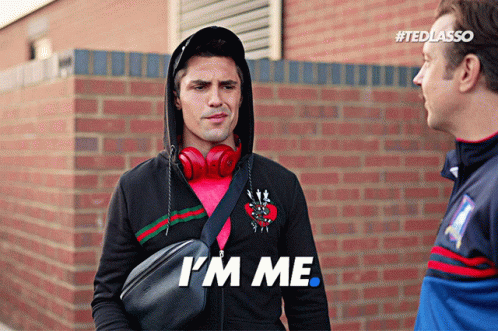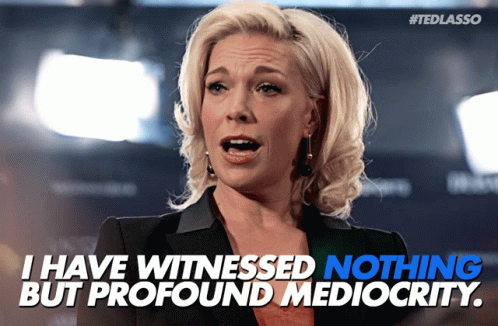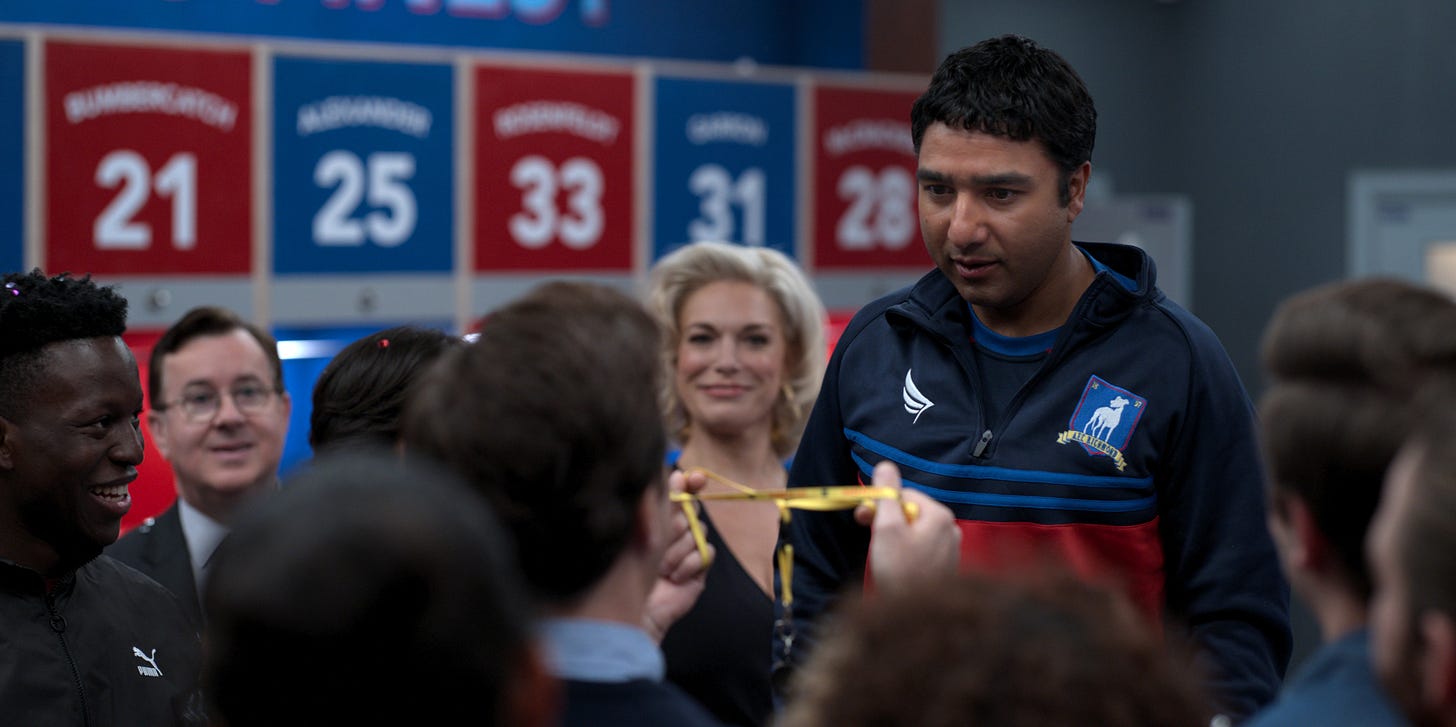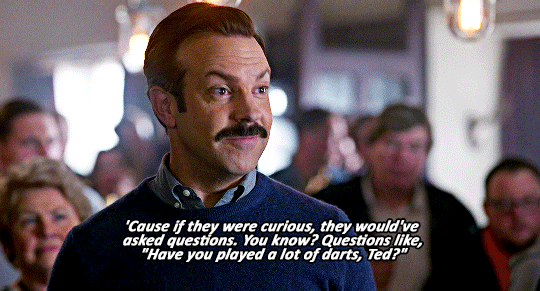The Lasso Way
Lessons on leadership and culture from a mustache-wielding high-spirited football coach
In tech, we obsess over leadership and culture, knowing they're key to innovation and "magical" products. Yet despite countless books and talks, these concepts remain frustratingly elusive. Enter an unlikely guru: a quirky American football coach rebuilding a British soccer team from the ground up. Who knew?
A serendipitous free Apple TV+ subscription led me to Ted Lasso, and I was hooked faster than you can say "football is life." Three seasons of binging later, it was clear I had stumbled upon a goldmine of wisdom for tech leaders.
Why? Because Ted Lasso isn't a show about football (soccer). It's about building and leading a team in a high-pressure, high-stakes environment. Sound familiar? That's the daily grind for every tech leader, from startup founders to big tech execs to managers and tech leads.
In this post, I’ll delve into what this eccentric coach can teach us about leadership in the tech world.
The Premise: An Unlikely Leader in Hostile Territory
Imagine this: An American football coach, with zero soccer experience, is suddenly dropped into a struggling English Premier League team. The owner secretly wants him to fail. The team is skeptical. The fans are hostile (chants of “wanker” fill the stadium in the first match). The press is sharpening their knives. You get the picture.
The parallels to the tech world are striking. How often have we seen a new leader parachuted into a struggling company, or a founder entering an unfamiliar market, facing skepticism from all sides? I’m willing to bet that every Staff+ Engineer has to deal with having to turn around a messed up team at least a few times in their career.
But Ted Lasso is built different. He's relentlessly optimistic, unfailingly kind, and surprisingly perceptive. He has a folksy wisdom that initially comes across as naive but gradually reveals a deep emotional intelligence. Ted's secret weapons? Genuine curiosity, unwavering belief in people's potential, and a willingness to be vulnerable.
In the face of hostility, Ted responds with empathy. When confronted with skepticism, he doubles down on sincerity. Where others see limitations, Ted sees possibilities. It's an approach that initially baffles those around him but gradually transforms the entire organization. In an industry often characterized by cut-throat competition, "move fast and break things" mentalities, and the glorification of the "brilliant jerk," Ted Lasso offers a refreshingly different playbook.
If I were to simplify Ted Lasso’s entire approach into one sentence, it’d be: it’s all about the people.
Sounds trite, but that’s the core concept underlying his entire philosophy. Amidst all the excitement about new technologies, world-changing products and new-age engineering problems, we tend to forget that we’re still humans operating in a world populated with other humans. To achieve seemingly impossible feats and push the frontier, we must first value and understand the individuals behind the efforts. By building trust, fostering a positive environment, and caring about each person's well-being, we unlock extraordinary potential and drive true innovation.
With this in mind, I couldn’t think of a more fitting way to analyze Ted Lasso’s leadership approach than to focus on the individuals around Ted, their character journeys, and the impact of Ted’s leadership on each of them. Whether you're trying to turn around a struggling team, integrate a difficult but brilliant employee, or simply create a more positive and productive work culture, there's something to learn from the Lasso Way.
[Here begin SPOILERS: If you haven’t watched the show, I’d recommend stop here, watch all 3 seasons, and come back. If you need further motivation to watch this show, check out this scene:
Go on, I’ll wait here for you.]
The Lasso Playbook: Detailed Character Journeys
Let's dive deep into the transformative journeys of key characters under Ted's influence and extract the leadership gold that's particularly relevant for us in tech.
Roy Kent: The Power of Vulnerability and Reinvention
When we first meet Roy Kent, he's a fading star—bitter, closed-off, and resistant to change. Sound familiar? In tech, we often encounter brilliant minds who are set in their ways, resistant to new ideas or methodologies.
Ted's impact: Instead of sidelining Roy, Ted sees his potential as a leader. He encourages Roy to mentor younger players, pushing him out of his comfort zone. When Roy's playing career ends, Ted supports his transition to coaching, showing faith in Roy's ability to reinvent himself.
The leadership lesson: In tech, we need to recognize that our team members' roles can and should evolve. The brilliant coder of yesterday might be tomorrow's inspiring team lead. But this transition requires vulnerability—the willingness to admit what you don't know and to learn new skills.
Take Satya Nadella at Microsoft. When he became CEO, he had to transition from a technical role to a leadership position that required a completely different skill set. Like Roy, Nadella had to embrace vulnerability, admitting he didn't have all the answers and needed to learn. This openness to growth transformed Microsoft's culture and business.
The tech takeaway: Encourage your team members to embrace vulnerability and be open to reinvention. The next game-changing idea might come from the person willing to admit they don't have all the answers.
Jamie Tartt: Reforming the Brilliant Jerk
Jamie Tartt is the archetypal "brilliant jerk"—incredibly talented but utterly self-centered. Every tech company has at least one Jamie: the 10x engineer who writes amazing code but leaves a trail of interpersonal destruction in their wake.
Ted's impact: Instead of just tolerating Jamie's behavior for his talent, Ted challenges him. He benches Jamie when his selfish play hurts the team, sends him back to Manchester City to face consequences, and later welcomes him back with open arms when Jamie shows a willingness to change. Ted sees Jamie not for who he is, but for who he could be.
The leadership lesson: In tech, we often make the mistake of tolerating toxic behavior from top performers. But Ted shows us that with the right approach, even the most difficult team members can become collaborative assets.
This reminds me of the "No Asshole Rule" championed by Robert Sutton in Silicon Valley. Companies like Google have adopted policies that prioritize teamwork and collaboration over individual brilliance. Sometimes, the most valuable thing a leader can do is help a talented but difficult team member grow into a true team player.
The tech takeaway: Don't just manage your brilliant jerks—transform them. Set clear expectations, provide opportunities for growth, and create a culture where teamwork is valued as highly as individual contribution.
Sam Obisanya: Nurturing Potential and Ethical Leadership
Sam's journey from a shy, young player to a confident leader on and off the field is a masterclass in nurturing potential. But it's his ethical stand against the team's questionable sponsor that really resonates with the tech world.
Ted's impact: Ted creates an environment where Sam feels safe to grow, make mistakes, and find his voice. When Sam takes an ethical stand, Ted supports him unequivocally, showing that principles matter more than short-term gain.
The leadership lesson: In an industry often criticized for its "move fast and break things" mentality, Sam's story reminds us of the importance of ethical leadership and creating a safe space for growth.
This brings to mind leaders like Marc Benioff of Salesforce, who's been vocal about tech's social responsibilities. Like Ted did for Sam, Benioff creates an environment where employees feel empowered to speak up about ethical issues.
The tech takeaway: Create a culture where team members feel safe to grow, make mistakes, and stand up for what's right. The next big innovation might come from the quiet voice you've been nurturing all along.
Rebecca Welton: The Transformative Power of Authentic Leadership
Rebecca's evolution from a vengeful owner seeking to sabotage the team to a supportive leader is perhaps the most dramatic character arc in the show.
Ted's impact: Ted's unfailing kindness and authenticity gradually break down Rebecca's walls. He shows her that vulnerability isn't weakness, and that being true to oneself is the foundation of effective leadership.
The leadership lesson: In tech, we often see leaders who hide behind a facade of infallibility. Rebecca's story shows us that true leadership comes from authenticity and the willingness to be vulnerable.
This reminds me of Sheryl Sandberg's approach at Facebook (now Meta). By sharing her personal challenges in "Lean In," Sandberg didn't just write a book—she sparked a movement. Like Rebecca, she showed that vulnerability and openness can be powerful leadership tools.
The tech takeaway: Don't be afraid to show your human side. Authentic leadership builds trust, fosters open communication, and creates a more resilient organization.
Keeley Jones: Recognizing Talent in Unexpected Places
Keeley's transition from model to successful businesswoman highlights the importance of recognizing talent in unexpected places.
Ted's impact: Ted sees beyond Keeley's initial role and recognizes her emotional intelligence and marketing savvy. He encourages her to apply these skills professionally, leading to her career transition.
The leadership lesson: In tech, we often fall into the trap of hiring for a narrow set of skills or experiences. Keeley's journey reminds us of the importance of diverse perspectives in driving innovation.
This echoes the approach of leaders like Airbnb's Brian Chesky, who often hires from outside the tech industry to bring fresh perspectives to his team. The lesson? Sometimes the best ideas come from the least expected sources.
The tech takeaway: Look beyond traditional backgrounds and skill sets when building your team. The next big innovation might come from someone with a completely different perspective.
Nate Shelley: The Pitfalls of Unchecked Ambition and the Importance of Emotional Intelligence
Nate's journey from kit man to assistant coach to rival is a cautionary tale about the dangers of unchecked ambition and the importance of emotional intelligence in leadership.
Ted's impact: Ted recognizes Nate's tactical knowledge and elevates him to the coaching staff. However, Ted's positive reinforcement inadvertently feeds Nate's insecurity and ambition without addressing his underlying issues.
The leadership lesson: While it's important to recognize and promote talent, it's equally crucial to ensure that rising stars develop the emotional intelligence to handle their new roles.
This brings to mind the cautionary tales of leaders like Travis Kalanick at Uber. Like Nate, Kalanick's unchecked ambition led to a toxic culture that ultimately damaged the company.
The tech takeaway: Ambition needs to be balanced with emotional intelligence and empathy to create sustainable success. As you nurture rising talent, make sure you're also developing their leadership skills and emotional intelligence.
Dani Rojas: Channeling Passion and Maintaining Perspective
Dani Rojas bursts onto the scene with his infectious enthusiasm and his mantra "Football is life!" He's a bundle of talent and energy, reminiscent of those bright-eyed, bushy-tailed new grads who join tech companies ready to change the world with their code.
Ted's impact: Rather than tempering Dani's enthusiasm, Ted channels it. He creates an environment where Dani's passion can flourish while gently guiding him to be a team player. When Dani faces a crisis of confidence after accidentally killing the team mascot, Ted helps him regain his perspective and joy for the game.
The leadership lesson: In tech, we often encounter highly passionate individuals who are full of energy but might lack direction or struggle to work within a team. Dani's journey shows us the importance of nurturing passion while providing guidance and perspective.
This reminds me of how Marissa Mayer, in her early days at Google, was known for her boundless energy and enthusiasm for product design. Like Ted did with Dani, Google's leadership channeled Mayer's passion, leading to innovations like Google's famously sparse homepage.
The tech takeaway: Don't dampen the enthusiasm of your team members – channel it. Create an environment where passion can thrive, but be ready to provide guidance and perspective when challenges arise.
Trent Crimm: “I Can’t Help But Root For Him”
Trent's journey from cynical journalist to Ted Lasso convert is a powerful lesson in the importance of keeping an open mind.
Ted's impact: Through consistent authenticity and unexpected kindness, Ted gradually changes Trent's perspective. Ted shows Trent that there's more to success than just winning games.
The leadership lesson: In tech, we often become set in our ways, convinced that our way of doing things is the best. Trent's story reminds us of the value of remaining open to new ideas and approaches, even when they challenge our preconceptions.
This mirrors the journey of leaders like Jeff Bezos, who's famous for his "Day 1" philosophy at Amazon. Like Trent, Bezos emphasizes the importance of always being open to new ideas and approaches, no matter how successful you've become.
The tech takeaway: Stay curious and open-minded. The next big breakthrough might come from an idea or approach you initially dismissed.
Conclusion: Be Curious Not Judgmental
In the end, success in tech, like in soccer, isn't just about the product you ship or the code you write. It's about the team you build, the potential you nurture, and the culture you create. And in that respect, we could all learn a thing or two from Ted Lasso and the transformations he inspires:
Embrace vulnerability and support reinvention (Roy)
Transform, don't just tolerate, your difficult geniuses (Jamie)
Nurture potential and stand firm on ethics (Sam)
Lead with authenticity and openness (Rebecca)
Recognize talent in unexpected places (Keeley)
Balance ambition with emotional intelligence (Nate)
Channel passion while providing guidance and perspective (Dani)
Stay open to changing your perspective (Trent)
There's a treasure trove of leadership wisdom hidden in "Ted Lasso" that I've only begun to unpack here. This show is a masterpiece that rewards multiple viewings, each time revealing new insights about leadership, teamwork, and personal growth. So the next time you're looking for inspiration on how to lead your tech team, consider revisiting AFC Richmond.
Just don't forget the biscuits.














A very refreshing read 🙂
Great show, great character and great example